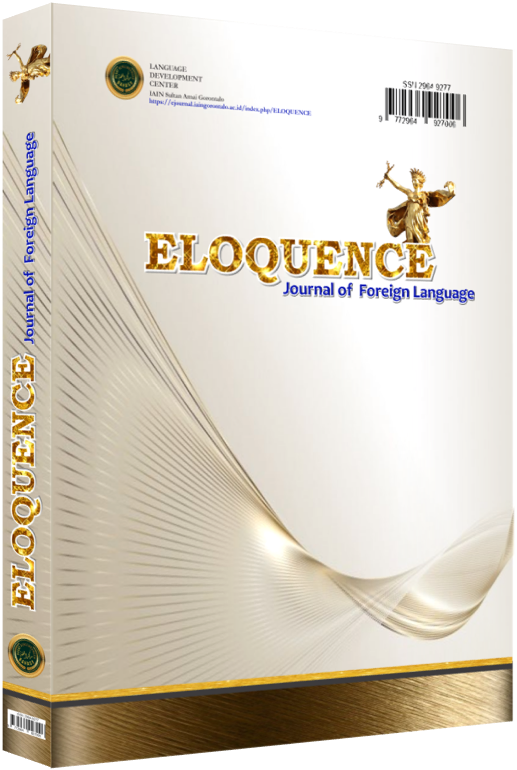Scientific Knowledge Integration and Overlapping Methodological Mechanisms in the Arab-Islamic Culture Analytical- Explanatory Study.
Integrasi Pengetahuan Ilmiah dan Tumpang Tindih Mekanisme Metodologis dalam Budaya Arab-Islam: Kajian Analitis-Eksplanatori
DOI:
https://doi.org/10.58194/eloquence.v3i3.2019Keywords:
Integration, Overlap, Cognitive, The Arabic-Islamic cultureAbstract
Background: The research starts from the issue of specialization and its consequences, which led to the fragmentation of sciences, causing humans to lose a holistic cognitive view of various aspects of religious and worldly life. This contrasts with the perspective of ancient Muslim scholars and their deep understanding of existence, as they possessed integrated scientific mechanisms during a time when the cognitive sciences were interconnected, overlapping, and linked to the Quranic text.
Purpose This paper aims to explore the concept of knowledge integration and its scientific mechanisms within Arab-Islamic culture. It highlights the contributions of Muslim scholars in establishing this concept and its role in advancing scientific progress across ages, linking it to the Quran. The study focuses on the interconnection of knowledge and sciences, their integration in serving and studying the Quran through an objective scientific approach grounded in transmitted, rational, and linguistic science.
Method: he research is based on two methodologies: the integrative approach in presenting research knowledge according to a functional interpretive pattern of a series of progressive and interconnected scientific concepts that cover various topics related to the sciences of language, doctrinal sciences, and rational sciences among Muslim scholars, without dividing knowledge into separate fields. The second methodology is the analytical approach, which analyzes the issue of cognitive specialization and highlights its shortcomings in contrast to the integrative and holistic knowledge found among Muslim scholars.
Results and Discussion: The research results revealed a scientific overlap between linguistic, religious, and philosophical mechanisms, demonstrating a mutual benefit and exchange between the sciences, both in content and form. This integration is one of the key factors in the development, advancement, and semantic flourishing of sciences, free from intellectual conflict, serving humanity and facilitating both its religious and worldly affairs.
Conclusions and Implications: The integration of knowledge across sciences has sparked the curiosity of scholars and those interested in science and knowledge, as they found in these fields a source of fascination that strengthens their passion for science and love of learning. The study also recommends conducting new integrative studies between transmitted and rational sciences in the study of Quranic miracles and their application to reality.
References
الغزالي، أبو حامد. (2000م). ميزان العمل. تحقيق: أحمد شمس الدين. بيروت: دار الكتب العلمية، ص 209
مسارات تفعيل التكامل المعرفي لتحقيق الجودة التعليمية بكليات التربية (رؤية مقترحة)، علا عاصم السيد إسماعيل، مجلة كلية التربية، جامعة بور سعيد، العدد 21، يناير 2017م علا عاصم السيد إسماعيل، مجلة كلية التربية، جامعة بور سعيد، العدد 21، يناير 2017م، ص (185- 247).
التكامل المعرفي بين العلوم: في رؤية علماء الطبيعيات المسلمين المعاصرين، زكي الميلاد، مجلة الكلمة، العدد 65، خريف 2009، ص (22- 44).
التكامل المعرفي في المنظومة التعليمية الجامعية، عقيلة حسين، مجلة البحوث العلمية والدراسات الإسلامية، كلية العلوم الإسلامية، جامعة الجزائر، العدد 4، 2022م، ص (145- 175)،
ابن فارس، أحمد. (1399ه). مقاييس اللغة لابن فارس. دار الفكر، م5، ص 135.
الشربيني، فوزي والطنطاوي، عفت. (2001م). مداخل عالمية في تطوير المناهج التعليمية على ضوء تحديات القرن الحادي والعشرين. القاهرة: مكتبة الأنجلو المصرية، ص 211.
ملكاوي، فتحي حسن. (2016م). منهجية التكامل المعرفي: مقدمات في المنهجية الإسلامية، المعهد العالمي للفكر الإسلامية، الولايات المتحدة الأمريكية. ط2.
الآبادي، فيروز. القاموس المحيط، الجزء الأول، باب العين، النسخة الإلكترونية، ص 701.
الجرجاني، علي. (1416ه). التعريفات. ط1. تحقيق: إبراهيم الأبياري، بيروت: دار الكتاب العربي. ص 186.
ملكاوي، فتحي حسن. (2010م). مفاهيم في التكامل المعرفي، مجلة إسلامية المعرفة، (60)، 5-38.
الجابري. محمد عابد. (2009م). نقد العقل العربي: تكوين العقل العربي. ط10. بيروت: مركز الدراسات العربية، ص 62.
كنعان، أحمد محمد. (2018م). إشكالية العقل والنقل. رابطة العلماء السوريين.
ابن تيمية، أحمد. (1411ه). درء تعارض العقل والنقل. ط2. تحقيق: محمد راشد سالم، منشورات جامعة الإمام محمد بن سعود الإسلامية، ص 138.
ابن تيمية، أحمد. (1411ه). درء تعارض العقل والنقل. ط2. تحقيق: محمد راشد سالم، منشورات جامعة الإمام محمد بن سعود الإسلامية، ص 144.
ابن تيمية، أحمد. (1411ه). درء تعارض العقل والنقل. ط2. تحقيق: محمد راشد سالم، منشورات جامعة الإمام محمد بن سعود الإسلامية، ص 133.
الحديثي، خديجة. (1965م). أبنية الصرف في كتاب سيبويه. ط1. بغداد: منشورات مكتبة النهضة، ص 27 -28.
الطنطاوي، الشيخ محمد. (1919م). نشأة النحو وتاريخ أشهر النحاة. ط 2. القاهرة: دار المعارف، ص 20.
(إبراهيم عبد الله، 1990، ص9).
رفيده، إبراهيم عبد الله. (1990م). النحو وكتب التفسير. ط3. الدار الجماهيرية للنشر والتوزيع والإعلان، ص13.
رفيده، إبراهيم عبد الله. (1990م). النحو وكتب التفسير. ط3. الدار الجماهيرية للنشر والتوزيع والإعلان، ص565-568.
حسن، (2014). عبد الله. التفاعل بين أصول الفقه والنحو. شبكة كتاب الألوكة.
حسن، (2014). عبد الله. التفاعل بين أصول الفقه والنحو. شبكة كتاب الألوكة.
الأفغاني، سعيد. (1987م). في أصول النحو، بيروت: المكتب الإسلامي، ص 104- 105.
ابن الحسن، أبو أنس. (2017). أهمية علم النحو لدارس أصول الفقه.
الخطابي، أبو سليمان. (1976م). بيان إعجاز القرآن ضمن ثلاث رسائل في إعجاز القرآن. ط3. تحقيق: محمد خلف الله ومحمد زغلول سلام. دار المعارف بمصر، ص 27.
فوزي، السيد عبد ربه. (2005م). المقاييس البلاغية عند الجاحظ في البيان والتبيين. مكتبة الأنجلو المصرية، ص 5.
البصير، كامل حسن ومطلوب، أحمد. (1999م). البلاغة والتطبيق. ط2. منشورات وزارة التعليم العالي والبحث العلمي في جمهورية العراق، ص 20- 27.
البصير، كامل حسن ومطلوب، أحمد. (1999م). البلاغة والتطبيق. ط2. منشورات وزارة التعليم العالي والبحث العلمي في جمهورية العراق، ص 6.
فتحي، أحمد عامر. (2000م). فكرة النظم بين وجوه الإعجاز في القرآن الكريم. ط1. منشأة المعارف، ص 22.
حسّان، تمّام. (2000م). الأصول: دراسة ابستمولوجية للفكر اللغوي عند العرب. ط1. القاهرة: عالم الكتب، ص 34.
الخولي، أمين. (1961م). مناهج التجديد في النحو والبلاغة والتفسير والأدب. ط1. دار المعرفة، ص 81:
Downloads
Published
Issue
Section
License
Copyright (c) 2024 Ismail Moussaoui

This work is licensed under a Creative Commons Attribution-NonCommercial-ShareAlike 4.0 International License.

















